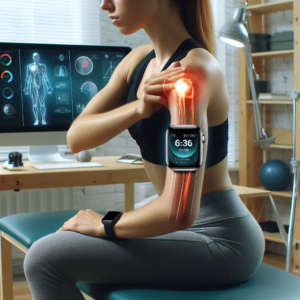Creating a Smart Rehabilitation Aide with Robust and Explainable AI
 Existing off-site monitoring systems can only detect the types of exercise performed or calculate calories burned, which are insufficient for capturing the quality of the exercise or assessing the patients’ progress. Moreover, modern deep learning-based solutions for healthcare often do not explain their results sufficiently, making it difficult for patients and therapists to understand and trust the results. This project develops a monitoring, modeling, and interactive smart rehabilitation aide to assess a patient’s home exercise program (HEP) focusing on the quality of exercise with robust and explainable AI. This system 1) monitors exercises performed remotely and quantify the quality and progress of exercise based on professionally-defined metrics, 2) generates explainable feedback and recommendations to the patients, in real time, based on their performance and progress toward their goals with the intent to guide the patient’s exercise at a micro level as a healthcare provider does, and 3) automatically extracts and sync key interpretable monitoring results that support the provider in better tracking the patient’s progress and adjusting the therapeutic plan. The technical solution consists of a core set of novel explainable and robust AI-based techniques for the automated generation of specialized modules required to assess exercise performance.
Existing off-site monitoring systems can only detect the types of exercise performed or calculate calories burned, which are insufficient for capturing the quality of the exercise or assessing the patients’ progress. Moreover, modern deep learning-based solutions for healthcare often do not explain their results sufficiently, making it difficult for patients and therapists to understand and trust the results. This project develops a monitoring, modeling, and interactive smart rehabilitation aide to assess a patient’s home exercise program (HEP) focusing on the quality of exercise with robust and explainable AI. This system 1) monitors exercises performed remotely and quantify the quality and progress of exercise based on professionally-defined metrics, 2) generates explainable feedback and recommendations to the patients, in real time, based on their performance and progress toward their goals with the intent to guide the patient’s exercise at a micro level as a healthcare provider does, and 3) automatically extracts and sync key interpretable monitoring results that support the provider in better tracking the patient’s progress and adjusting the therapeutic plan. The technical solution consists of a core set of novel explainable and robust AI-based techniques for the automated generation of specialized modules required to assess exercise performance.Rehabilitation Aide PI
Rehabilitation Aide Personnel
Core Publications
Wang, Hanchen David, and Meiyi Ma. “PhysiQ: Off-site Quality Assessment of Exercise in Physical Therapy.” Proceedings of the ACM on Interactive, Mobile, Wearable and Ubiquitous Technologies 6, no. 4 (2023): 1-25.

